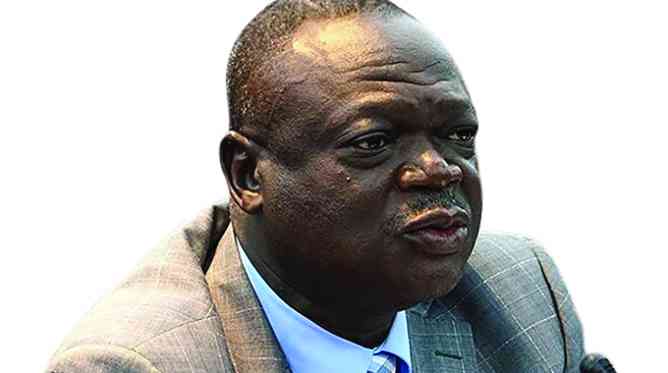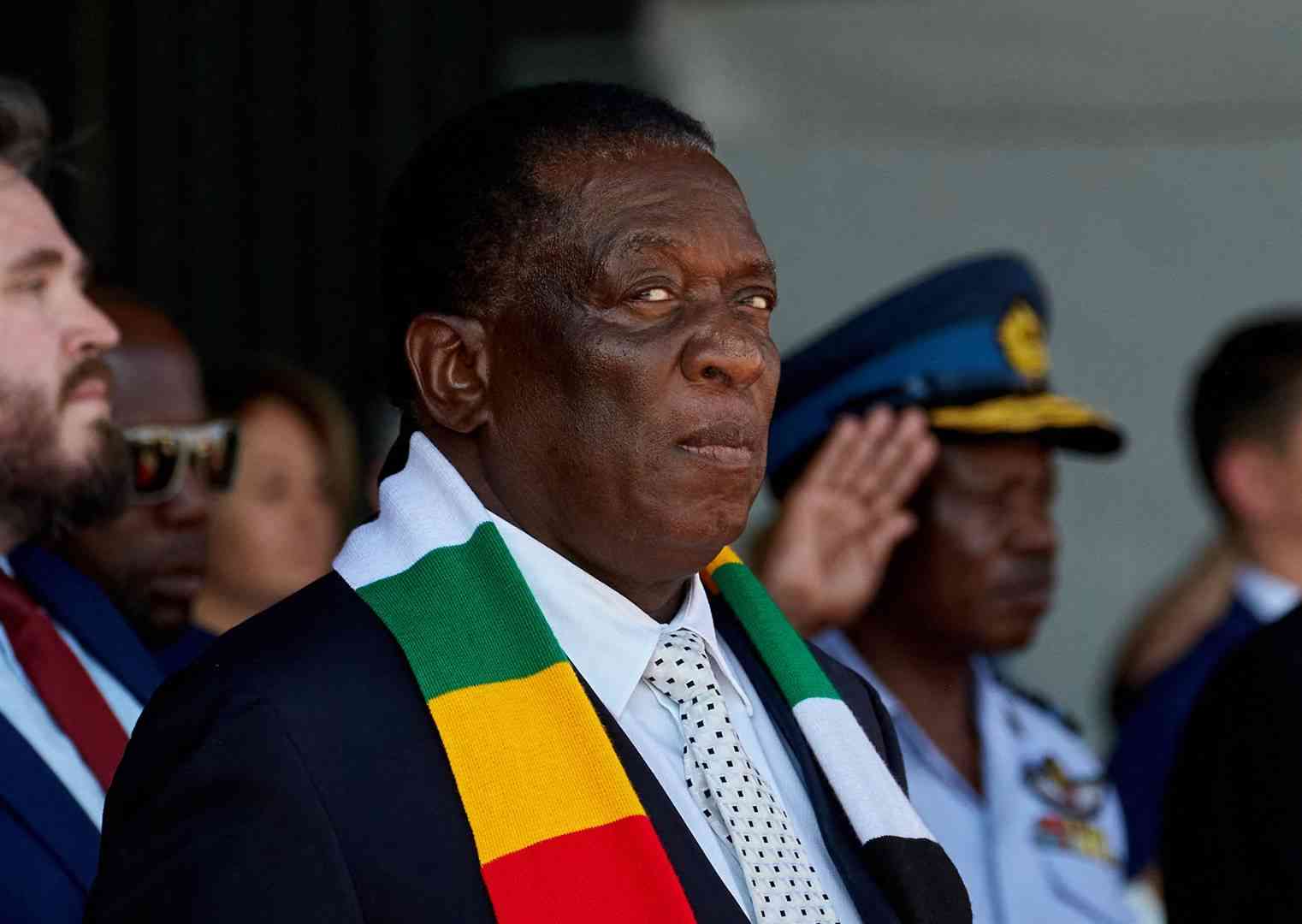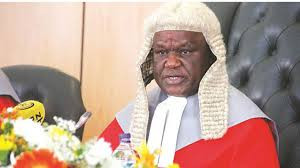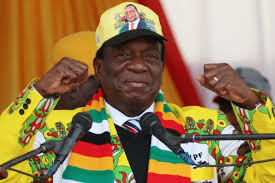
As I sit in my library in a far away foreign country, I see clearly what my brothers on the ground in Zimbabwe fail to see.
An Ashanti idiom that says chickens are too close to the ground to see the gathering storms in the sky.
The main issue, which needs to be emphasised, is that more than five times in half a century, we have called upon the “Generals” to save us.
Reading Miles Tendi’s latest book, The overthrow of Robert Mugabe side by side with Eddie Cross’s article on Corruption, the conclusion is inescapable that the “Generals” are not only complicit but are as much sinners, malefactors and transgressors in the problems we now face.
A false narrative
The Blessed Geza revolution, like a drama in Bantu tradition, where the main actor is a woman scorned, who stands in the village square, threatens to undress herself, meanwhile revealing all the closet secrets of oppression and neglect, which the elders have refused to address.
That is what Geza has done.
But all the actors in the sordid drama are sinners, malectaors and transgressors. The question then arises, how on earth do we propose to redeem ourselves through these broken vessels?
- Mavhunga puts DeMbare into Chibuku quarterfinals
- Bulls to charge into Zimbabwe gold stocks
- Ndiraya concerned as goals dry up
- Letters: How solar power is transforming African farms
Keep Reading
In my 10-year research on Mugabe, Professor George Kahari told me this story. An electoral commissioner, Kahari had confronted president Mugabe with the news that: “Wadyiwa, Iwe Robert nemukomana Morgan.” (You Robert, you have been beaten by Morgan Tsvangirayi in the election.)
Kahari heard from a petrol boy these words. “Iwe Mudhara, you want petrol, do you think you can survive a Puma?” Kahari had been sentenced to death by automobile accident for his brashness.
While Kahari was waiting for an audience with Mugabe, he heard words being exchanged between Mugabe and General Perence Shiri .
Shiri had been re-assigned to Mashonaland Central. He informed Mugabe in the following words.
“We will clean them out,” said Shiri. This was a reference to the Generals campaign to regain the election loss of 2008 generally referred to as the half-sleeve campaign-where MDC members caught in the winds got the winds suffered severe beatings and maiming.
As Brother Shiri emerged, they locked eyes, and Kahari says that he felt a warm feeling of sweat all over his body as he remembered that this was the Black Jesus in the flesh, the mastermind of Gukarahundi.
This was the “baddest” brother in the flesh.
Recently, a video has emerged in which Sister vice-presidentJoice Mujuru speaks about confronting Mugabe over these atrocities.
One of these generals was the just passed Brother General Victor Rungani.
According to his children, Professor Ellen Rungani and her brother Daniel, the general, suffering from breathing problems, was moved from one hospital to another (four times).
Even Parirenyatwa Hospitalwas not properly equipped to provide “a breathing stabiliser.” (Ellen’s words).
According to Daniel, his father, an avid disciple of Sun Tsu-the author of The Art of War- was a true believer and ready to die for the cause.
The issue here is that Shiri, Rungani, Mujuru and many other “Generals” are our heroes and were in the forefront of Mugabe’s revolution and its values.
Today there is talk about the “generals meeting” and Zimbabweans looking for salvation from the hill up yonder.
Eddie Cross has described the state of affairs over which these “generals” presided.
In 1983 they took over the Cotton Marketing Board with an output of 500 000 tones of cotton a year, the second largest crop in Africa. Karina, Whitehead, Glendale Mills were among the consumers of this product and employed thousands of workers.
Cross, a master of polite understatement, says that cotton was sold under advantageous conditions to businessmen linked to government, under-invoicing products and “earning a bit externally.” The Cotton Board bankrupted itself, the directors “fled and can no longer be found.”Today Zimbabwe produces 20 000 tons of cotton per year.
The companies mentioned above have disappeared as did the thousands of jobs they provided.
This pattern was applied all round. “We import 70% of everything where before independence we were largely self-sufficient.”
The Muzungu concludes with a fatherly sigh of sadness.
These generals walk the streets, dressed in pompous decorated suits-their chests puffed up-utterly oblivious of the fact that they are nothing but empty suits.
We look up to them for salvation.
Refusing to learn
I am not sure whether the “Generals” under Blessed Geza’s influence have learned anything from the past. Me thinks that the wrong lessons are being propagated.
Youth minister Tino Machakaire (pictured) (2 May) visited Parirenyatwa Hospital and shows a blown-out ceiling panel as evidence of the rotten state of affairs there.
Brother Machakaire says that he “felt deeply concerned by the conditions I witnessed.”
Well, one eye is better than total blindness. But the missing ceiling panel is not the problem.
The problem is that 80 percent of all Zimbabwean medical staff has fled the country. Stupid.
The problem is that Zimbabwean professors, after 20 years of study, find it necessary to argue for a wage better than that of a slave.
Yes Sir, slaves were paid. In some cases, they saved enough to buy their freedom.
The problem is that the mineral wealth has been pledged to foreigners. These “generals” have not learned the lesson that Dubai Oil is sovereign wealth. Every adult Emirati receives 2000 Dinari per month.
It is alright to employ foreigners but they should not own sovereign wealth. Here is an example.
Niger’s lithium mines were exploited by the French until three years ago. Niger was paid US$1 billion per year at 88 cents per lithium kilogramme. Today Niger earns US$300 billion per year from the same mines at US$8 per lithium kilogram.
That is why US Brother General Langley is working hard with Ivory Coast and Nigeria to overthrow Niger and Bukina Faso juntas. In their minds, African wealth rightfully belongs to France and the US.
To be fair, Zimbabwe “generals” are in the good company with our educated brothers.
Professor Mthuli Ncube believes that imperialists can be impressed by polite English syntax and speech.
*Ken Mufuka is a Zimbabwean patriot. He writes from the US.











